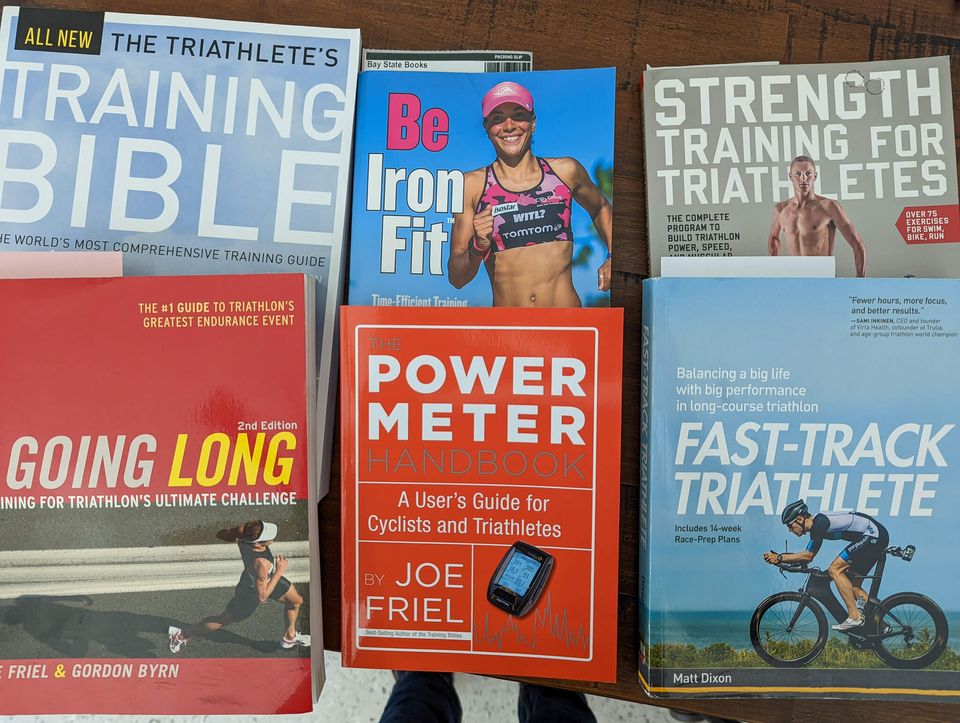What Would You Do With 1,000 Hours? (Newsletter 066)

Greetings friends.
This post is not about sports, even though it might look like it. This post is also not about personal fitness, although you could be forgiven for thinking so.
Today's post is about making use of our second-most precious commodity, after our well-reasoned minds, which is our time. As such, even if you could give a fig for swimming, biking, or running, I urge you to stay the course with me today. The reward for reaching the finish line may be a lesson that brings you far in life.
Before we start, let me highlight the latest entry in the Guest Post series, Cool Final Words (by Erek Dorman). Erek has had more cause than most to consider how best to spend his time. If you're like me, you'll find his thoughts provoking, moving, and wise. Stoics come in many guises. Take a moment and read his wonderful post.

What does 1,000 hours represent?
- It's a bit more than 11% of all the hours in a year. If you subtract out, say, eight hours a night for sleep, and time spent working a full-time job, that still leaves us with something like 4,000 hours' time at our disposal over a year.
- If you make $10/hour, working 1,000 hours gets you a bit less than $9,000 after tax. If you're a lawyer charging $500 an hour, you'll gross a cool half million, although you'll pay a lot more in taxes.
- The World Health Organization recommends we all get at least 150 minutes of exercise a week, or 2 1/2 hours. At that rate, you'd need almost eight years to hit your 1,000 hours. We can be more ambitious. Most fit people I know invest an hour a day on average in their training, say 400 hours a year. For them, 1,000 hours is 2 1/2 years of training.
Why do I raise all this? I've been grappling with a decision for months now. Should I commit to doing an Ironman? This is the ultimate of triathlons, comprising a 3.9 km swim, 180 km bike ride, and then running 42.2 km, a full marathon.
Although a handful of the world's fittest have completed this distance in under eight hours, non-elite times cluster around 12 hours. The course cutoff is usually 17 hours. As impressive as completing an Ironman may be, the training to be able to show up on race day dwarfs the race itself. And it is the training for an Ironman more than the event itself that is giving me pause.
If you've been reading for a while, you might guess why I am considering an Ironman at all. I was both awed and inspired by two friends who competed in the World Championships back in May. See When Suffering Is A Good Thing.
The absolute best thing about having fit friends is that they inspire you to be more fit. The absolute worst thing about having fit friends is that they sometimes inspire you to crazy fitness goals.
On a related note, in my Career Path column this week I discuss Can You Be Too Good At Your Job? I explore the downside of performing well all the time and how you can protect yourself from unscrupulous colleagues.

I expect that most often I've been the one encouraging friends and colleagues to bake regular fitness into their lives. With an annual marathon streak extending 20 years, I wanted to demonstrate with my actions that a regular fitness habit could coexist with a demanding in-house job. Although the marathons themselves were stressful, the knowledge that one was coming up gave me motivation to be consistent in my training.
I thus do not begrudge by friends for egging me on. True, we may have discussed some bets involving them doing 100K races conditional on my first completing an Ironman. Of course, those bets are completely unenforceable from a legal perspective. That said, a lighthearted bet is one way people find themselves considering feats they otherwise wouldn't.
It didn't help that I've had an Ironman on my secret wish list for a long time. With the latest push being all the excuse I needed, I've been in preparatory mode ever since.
- It started with a host of books describing how to train for long course triathlons. Most assume at least six months of diligent training, and longer if you need to build up a base in any discipline. Years potentially.
- I started taking swimming classes. I bought new swimsuits and goggles, even a wetsuit.
- I took spin classes. I found myself doing "brick" workouts, which involve running immediately after biking.
- I told myself I would hold off buying a racing bike until I was sure I was committed, which I arbitrarily decided would mean biking at least 1,000 kilometers.
In my particular case, I need to build up my basic bike endurance before I could even start race training. I've done the 1,000 kilometers now. Realistically, though, to perform as I'd like in a race, I would need to devote 10-15 hours a week to my training for the next year and a half. Hence the 1,000-hour question.
Having done all this preparation and thinking, I find myself asking a Stoic question. What would I be doing the Ironman race for? Is it for bragging rights (yes) or to check an item off a decades-old list (yes)? Is it to show camaraderie and have some fun with friends (yes and yes)? Is it to maintain or gain fitness? Hmmm.
Many people want to prove to themselves (or simply find out) what they can do. This can be an eminently worthwhile goal. But that's not my motivation. I feel like I've explored this, at least with sports and fitness, multiple times.
I cannot in good faith dispense Stoic advice without admitting that most of my potential rationales don't stand up to deep scrutiny. I want to stay fit and healthy and avoid injury. Nothing about biking six hours at a go is necessary for that. If I'm honest, I suspect little about running marathons is necessary for long-term health and avoiding injury either. At the same time, I've really enjoyed my new workouts: swimming, biking, yoga, even strength training.
If I was following my own advice, I would say look to the underlying value of things. What is it you really want to accomplish? What will you be most happy about looking back in a couple years? No doubt I would be gratified to have that Ironman medal, and the accompanying backpack and t-shirt, etc. I would look back on the accomplishment with pride for a long time.
I think I know, though, the wise thing to do is to take the same hours I am willing to commit to Ironman training and devote them to a sensible mix of fitness-focused workouts. Do them all in such frequencies and amounts that keep them fun for the long-term. Will someone give me a medal for this? Probably not.
Regardless of external rewards or pressure, it is eminently valuable to determine for ourselves how best invest our time. In fact, it is the most valuable thing we can do, as long as we can follow the conclusions our thinking leads us to.
Each and every year, we've got 4,000 hours' free time at our disposal. How about we make a conscious choice to direct just 25% of that time. What will you do with 1,000 hours?
Be well.
PS – In this week's other article (The Worst Career Advice) I explore good and bad advice from the potential job switcher's perspective. When should you jump ship, and why? Learning how to look past the surface to the deeper value is equally helpful in this context.

Hit reply to tell me what's on your mind or write a comment directly on Klugne. If you received this mail from a friend and would like to subscribe to my free weekly newsletter, click here.







Member discussion